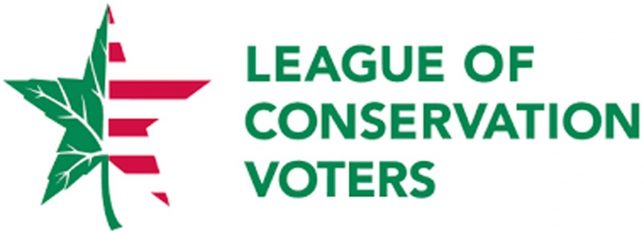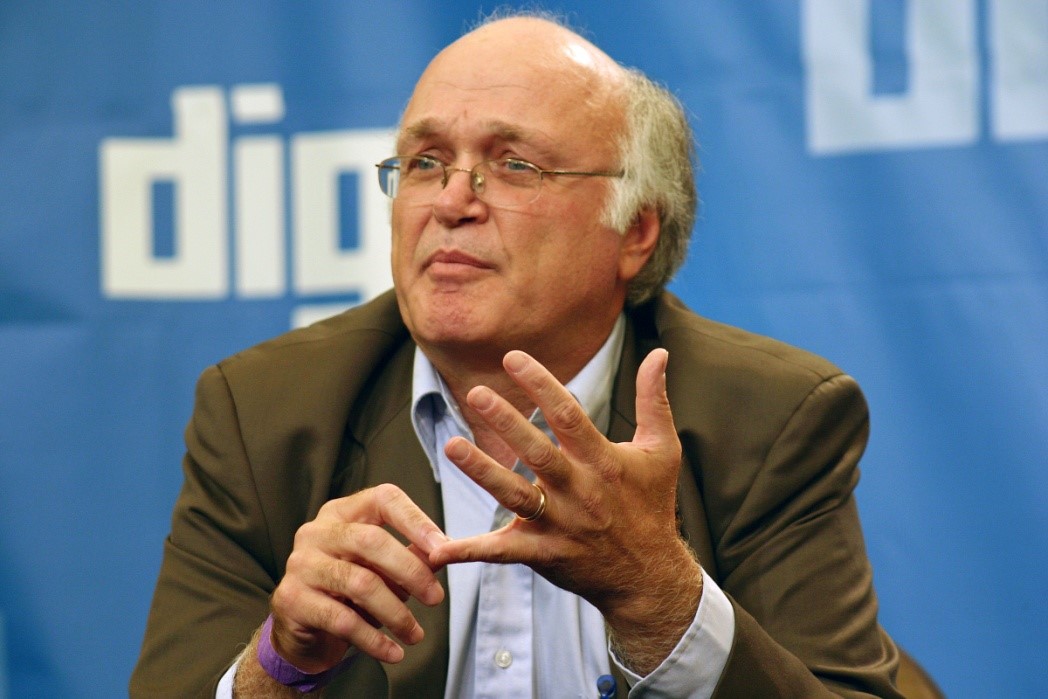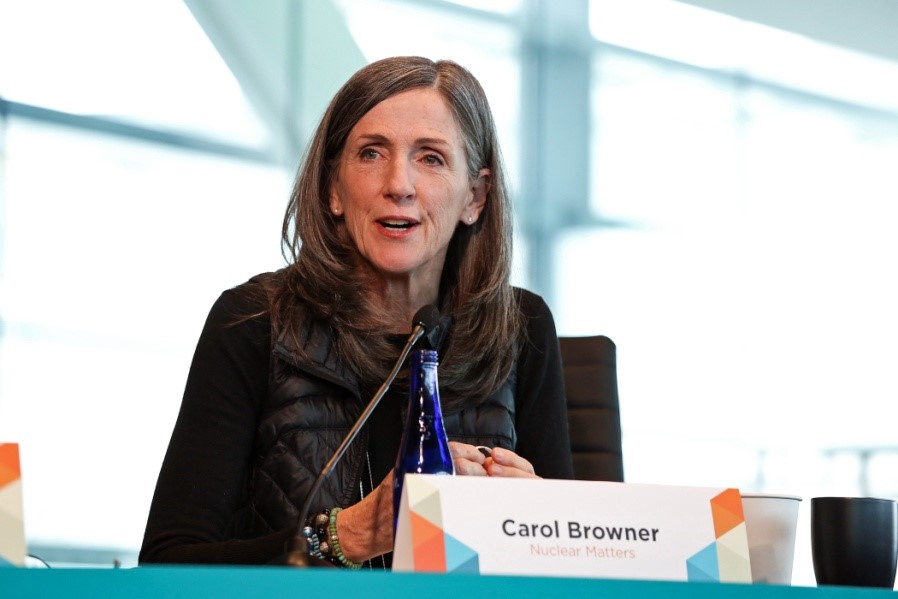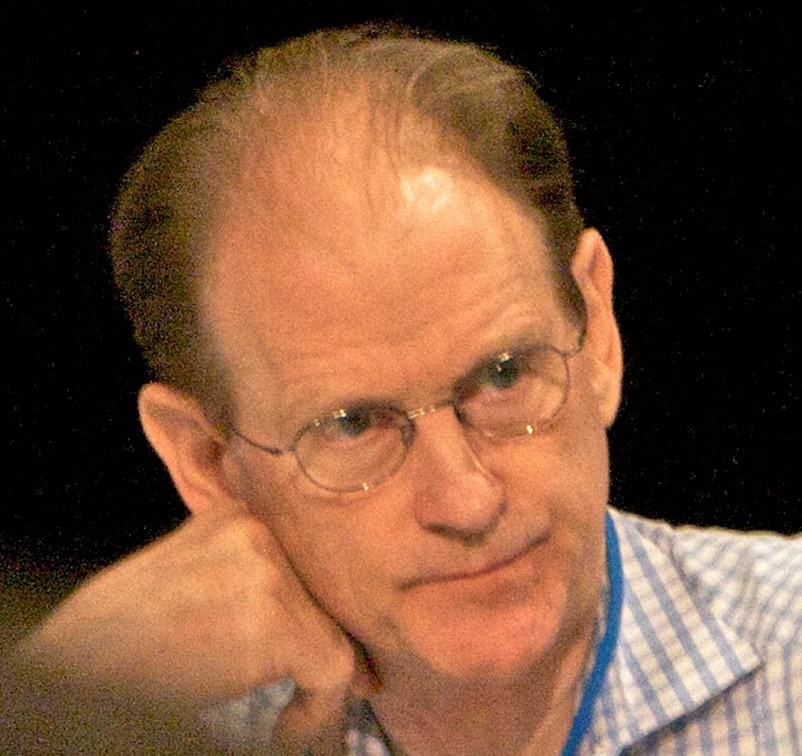Green Watch
League of Conservation Voters: Environmental Group or Democratic Campaign Heavyweight?
 Under the guise of holding lawmakers “accountable” regarding environmental issues, the LCV makes use of a network of 34 state affiliates to promote a radical far left agenda. Credit: LCV website. License: https://goo.gl/0qdlE8.
Under the guise of holding lawmakers “accountable” regarding environmental issues, the LCV makes use of a network of 34 state affiliates to promote a radical far left agenda. Credit: LCV website. License: https://goo.gl/0qdlE8.

Summary: Supposedly a grassroots organization dedicated to combating climate change, the League of Conservation Voters is a frontline funnel for ultraliberal “dark money” candidates and causes.
Officially, the League of Conservation Voters (LCV) is a 501(c)(4) environmentalist organization based in Washington, D.C. But under the guise of holding lawmakers “accountable” regarding environmental issues, the LCV makes use of a network of 34 state affiliates to promote a radical far left agenda. It has earned a reputation as a “dark money heavyweight,” funding extremist causes in secret by taking advantage of Federal Election Commission (FEC) regulations which permit politically active nonprofits to limit the disclosure of donors.
The LCV’s roots go deep. Founded in 1969 by environmentalist David Brower to advocate for stricter environmental regulations, it was a little-known single-issue organization until 2012. Since then, it has morphed into a highly active agitation group aimed at defeating Republican politicians in national and state elections.
Rapid Growth and Left-Wing Activism
The Center for Responsive Politics has identified the LCV as one of the top-spending, non-disclosing groups involved in federal politics. Just a few years ago, though, they were still a relatively minor player. What caused them to metastasize?
The LCV supported Democrats in the 2012 general election to the modest tune of $2,605,809, the largest portion of which went to defeating Republican presidential candidate Mitt Romney ($1,099,450). Two years later, however, according to Federal Election Commission records presented by OpenSecrets.org, the League’s funding exploded: The 2014 midterms saw the LCV spend $8,987,431 to defeat Republican Thom Tillis in the North Carolina U.S. Senate race—to no avail, Tillis won. They dropped another $15,666,771 million on the 2016 election; of that, $8,299,525 was spent against Republicans and $7,367,246 was spent to help Democrats. The bulk of their monies, as expected, went toward supporting Democratic presidential nominee Hillary Clinton ($6,281,871).
But who is funding this shadowy outfit? LCV officers informed the FEC in 2012 “that all expenditures were paid for by money from its ‘general treasury funds.’” League Spokesman Jeff Gohringer claims his organization receives contributions from over a “half-million supporters across the country.” But a review by the Center for Public Integrity shows considerable backing from various progressive agitators and big-league environmentalist nonprofits: One of these, the Green Tech Action Fund, gave the LCV $2.6 million in 2012. That same year, The Advocacy Fund–the campaign arm of the ultraprogressive Tides Foundation–gave an additional $2 million. The LCV has increasingly benefitted from huge donations from prominent left-wing players, to wit: $3 million from Boston investor Robert Grantham; $3 million from the Environment America Action Fund; $500,000 from Bain Capital’s Joshua Bekenstein, and $400,000 from the Democratic-run Senate Majority PAC.
The two largest single contributions to the LCV in 2016 were from Dustin Moskovitz–co-founder of Facebook and Asana–and his wife, Cari Tuna. Each gave the League $2.5 million. In 2014, the indispensable liberal George Soros and the AFSCME donated $500,000 apiece. Tom Steyer’s NextGen Climate Action backed the LCV ($775,000), as did Michael Bloomberg ($200,000) and the Senate Majority PAC ($350,000).
Hypocritical Attacks Against So-called “Dark Money”
During the Senate confirmation hearings for Supreme Court Justice nominee Neil Gorsuch, Senator Sheldon Whitehouse (D-RI) decried the “dark money” supporting Gorsuch’s confirmation. Richly, Whitehouse has himself been a willing recipient of “dark money”–accepting $20,000 in campaign contributions from the League of Conservation Voters.
This is only a part of a larger development in the LCV’s evolving strategy. While political campaigns and PACs must regularly report funding, the FEC’s rules are less strict concerning certain social welfare nonprofits. As such, the League of Conservation Voters is only required to disclose the names of donors who give for the specific purpose of funding political advertisements. Donors can—and do—instead give to the LCV’s general treasury fund, where the money is donated anonymously.
LCV Leadership
Gene Karpinski became President of the LCV in April 2006, but he has a history in the organization’s administration and political outreach.

Karpinski was one of those anointed left-wing activists invited to address the Democratic National Convention. Credit: The Leadership Conference on Civil and Human Rights. License: https://goo.gl/vZZnJn.
Karpinski’s Democratic credentials are impressive. After obtaining his J.D. from Georgetown Law Center in 1977, Karpinski joined the ultraliberal think tank Public Citizen as its field director. In 1981, he moved into a role with the Colorado Public Interest Research Group (a state affiliate of PIRG), an environmentalist, anti-corporate nonprofit. Karpinski then briefly served as field director for People For the American Way before returning to the United States Public Interest Research Group (the national lobbying arm for PIRG) as executive director. He held that position for 21 years while simultaneously serving on the LCV board of directors and its political committee before joining as president. During the 2016 election, Karpinski was one of those anointed left-wing activists invited to address the Democratic National Convention.

Carol Browner is a former Administrator of the Environmental Protection Agency, a position she held for eight years during the Clinton era. Credit: Third Way Think Tank. License: https://goo.gl/BFDxpV.
Carol Browner, LCV board chair, and a Distinguished Senior Fellow at the Center for American Progress, is a former Administrator of the Environmental Protection Agency, a position she held for eight years during the Clinton era. Around this time, she also worked with Senator Al Gore and with the now-defunct Citizen Action—a radical liberal group active in the 1980s and early 1990s, with roots in the 1960s-era Indochina Peace Campaign. In the early 2000s, Browner became a founding member of Madeleine Albright’s Albright Group before being appointed Director of the Office of Energy and Climate Policy for the Obama administration. The elimination of that position by Congress in the 2011 budget forced her to make the jump to the board of the League of Conservation Voters, where she maintains close ties with many of her old friends, which is to say socialist groups and globalist organizations.
Former New York Congressman Sherwood Boehlert is the board’s vice chair and token Republican. A lobbyist for the Accord Group, a government relations consultancy with professional ties to the EPA and various environmentalist organizations, Boehlert has a reputation as a GOP moderate. He was a major proponent of the acid rain provisions in the Clean Air Act Amendments of 1990, and pushed for more rigorous Corporate Average Fuel Economy (CAFE) standards. Asked about his biggest environmental victory, Boehlert responded:
“I suppose the biggest victory looking back was acid-rain regulation. That was my addition to the Clean Air Act amendments signed into law by President George Herbert Walker Bush, which launched the nation’s war on acid rain. That’s my legacy. That proved the success of a cap-and-trade system in which polluters buy and sell the right to pollute, and it is now the basis of international climate strategy.”
Unsurprisingly, Boehlert endorsed Hillary Clinton for president in 2016, and was one of 30 former Republican congressmen to denounce Donald Trump in an open letter.
An unsavory mélange of extremist environmentalist groups is also represented on the LCV board. Among these are such beacons of temperance as Earthjustice, the Natural Resources Defense Council, NextGen Climate, Green Latinos, and The Wilderness Society. And in keeping with the League’s role as a progressive outlet, several hard Left groups—the Turner Foundation, the Hip Hop Caucus, Bloomberg Philanthropies, and Rockefeller Family & Associates—can also be found sitting beside Carole Browner at the long, glossy conference table in the LCV boardroom.
Would-Be Left-Wing Player
The League of Conservation Voters regularly coordinates with other Left-wing outfits on environmentalist and anti-corporate issues. Typically, these are thinly-veiled “pro-conservation and pro-jobs” projects; reality reveals an unbending allegiance to the Democratic Party and its allies. In total, the LCV endorsed 16 Democrats for U.S. Senate and 58 for the House of Representatives, and were vocal supporters of Hillary Clinton’s presidential campaign. The LCV also produces an annual “National Environmental Scorecard” which scores members of Congress on clean air, energy, and land use. “Climate change deniers” and “polluters,” needless to say, are regularly assailed as anti-environmental nut jobs. In 2016, the average Senate score was 50 percent, and the House average was 43 percent.
On November 2, 2016, the LCV released a joint press release with Emily’s List and the Latino Victory Fund in support of Democrat Nanette Barragán‘s race for the California 44th Congressional District. “Barragán is committed to protecting the air, water and health of her constituents over the profits of corporate polluters and we are proud to stand with her in this race and push back against these outrageous attacks,” the LCV said in the release. Barragán previously served on the Hermosa Beach City Council, where her great accomplishment was upholding a ban on local oil drilling in 2015. This moratorium could cost the city $627 million in lost revenues over the next three decades. Worse, the city was contractually obligated to pay the oil company a $17.5 million fee as compensation for the ban—and this at a time when its annual operating budget is only about $40 million.
All these financial losses however didn’t stop Barragán from claiming victory: “Barragán understands there’s nothing more important than the health of our families and community. That’s why she stood up to the big oil companies and helped win the fight to keep them from oil-drilling in our neighborhoods and off our beaches.” And yet, despite the vast sums it launders for the Democratic Party, the League doesn’t have an especially strong track record in getting liberals elected. Here are some examples of good money wasted:
In October 2016, the LCV and the Gay and Lesbian Victory Fund issued a joint endorsement of Democrat Matt Heinz for Arizona’s 2nd Congressional District, calling him a “strong environmental ally” and promising he’d build on his “strong record” in Congress. Heinz lost to Republican incumbent Martha McSally, 57 percent to 43 percent. In preparation for the 2016 presidential election, the LCV partnered with the United Steelworkers Union to establish a joint super PAC, the New American Jobs Fund (NAJF). This Fund dropped $4 million in the Nevada, North Carolina, and Pennsylvania U.S. Senate races.
In partnership with NAJF, the Sierra Club and the Environmental Defense Fund, the League of Conservation Voters co-sponsored a $1.85 million media blitz aimed at defeating Republican Nevada Senate candidate Joe Heck. Anti-Heck ads, released in English and Spanish, flooded the airwaves, tying Heck to Donald Trump, racism, and climate change denial. Though Democrats did manage to hold Harry Reid’s Nevada seat by a thin margin of less than 2.5 points, LCV’s gobs of money were not very well spent here.
Meanwhile, LCV releases an annual report of the “dirty dozen,” a list of politicians—all Republicans—the group hopes to defeat. In 2016, those politicians included:
Presidential candidate Donald Trump; Colorado U.S. Senate candidate Darryl Glenn; Nevada U.S. Senate candidate Joe Heck; North Carolina U.S. Senator Richard Burr; Ohio U.S. Senator Rob Portman; Pennsylvania U.S. Senator Pat Toomey; Wisconsin U.S. Senator Ron Johnson; Colorado Congressman Mike Coffman; Florida Congressman David Jolly; Minnesota U.S. House candidate Jason Lewis; Nevada Congressman Cresent Hardy; and Texas Congressman Will Hurd.
Of these, the LCV only succeeded in defeating four—Glenn, Jolly, Heck, and Hardy—not a great return for their investment.
Controversies
The League of Conservation Voters, as you might have guessed, has been accused of employing shady election tactics. In 2012, a Contra Costa County, CA, online news site reported that a group connected to the LCV Education Fund had sent one of the site’s readers a “voter registration form” and urged them to fill it out. When the reader contacted the county registrar of voters, he was told no such form had been sent at all—an incident widely reported on the city’s news outlet, Claycord.com.
Ken Tomlinson, the former editor-in-chief of Reader’s Digest, hit the nail on the head when, in an October 2010 Daily Caller op-ed, he accused the LCV of being more interested in promoting Left-wing causes than in environmental protection. In particular, he took issue with their firm support of then-Congressman Tom Perriello, a support that prompted him to ask a disturbing question: “Why in the world is the League of Conservation Voters joining with the far-left Service Employees International Union (SEIU) in a desperate attempt to re-elect one of George Soros’s favorite congressmen?” Tomlinson cited the LCV’s rigid leftist partisanship, faulty polling data, and oodles of funding from liberal elders, and concluded that the League only cared about preserving traditional Democrats— not local conservation. As it turned out, Perriello was beaten soundly in the 2010 elections, leaving us to wonder who at LCV actually decides where money should be spent.

Catalist—run by Harold Ickes, a close associate of the Clintons—has received millions of dollars in investments from George Soros. Credit: Ben Stanfield. License: https://goo.gl/22JRG6.
Like many progressive organizations, the League of Conservation Voters employs a company called Catalist to provide its voter lists and data. Since 2006, Catalist has received millions of dollars in investments from George Soros; it’s run by Harold Ickes, a close associate of the Clintons. Catalist, however, has recently come under fire for attempting to evade campaign finance laws by providing unions and Democrats with its information at a discounted price. This, it’s been argued, comprises in effect an in-kind contribution that goes unreported to the FEC. Unsurprisingly, Catalist only sells its data to left-wing groups.
Conclusion
The League of Conservation Voters is a progressive dark money manipulator fronting as a single-issue ecological outfit. Like the radicals which fund it, the LCV is concerned with dramatically redrawing the political map to suit far Left special interests.
Kevin Boyd is a writer in Washington, D.C., and Hayden Ludwig is a communications assistant at Capital Research Center.



